CORPORATE ACTION
The Global Commitment 2023 Progress Report
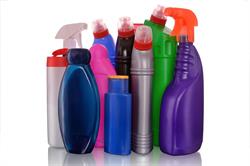 Each year, Ellen MacArthur Foundation in collaboration with UN Environment Programme produces an annual report on progress the 500 or so signatories to the Global Commitment have made in tackling plastic waste from packaging. The fifth annual report, based on 2022 data, contains a vast amount of aggregate and individual signatory data, as well as commentary from the authors. It focuses specifically on five key metrics and the extent to which the signatories are progressing towards their targets:
Each year, Ellen MacArthur Foundation in collaboration with UN Environment Programme produces an annual report on progress the 500 or so signatories to the Global Commitment have made in tackling plastic waste from packaging. The fifth annual report, based on 2022 data, contains a vast amount of aggregate and individual signatory data, as well as commentary from the authors. It focuses specifically on five key metrics and the extent to which the signatories are progressing towards their targets:Eliminate problematic or unnecessary plastic packaging: There has been continued progress in elimination efforts but 80% of brands and retailers still use one or more of the eight most commonly identified problematic packaging types. As a group, EPS packaging was reduced by 36 percent between 2020 and 2022 while global use of PVC and EPS has grown over 3 percent.
Take action to move from single-use towards reuse models where relevant: As a share of total new packaging, reusable plastic packaging has remained flat at an average of 1.2% among the signatory group. 53 percent reported no reusable plastic packaging. Authors say that although “attention, momentum, and efforts on reuse have increased significantly since 2018 – both in the signatory group and in the industry at large – this hasn’t yet resulted in progress at scale”, but the efforts have “shed clearer light on the main barriers to scale and identified opportunities for potential solutions”.
Decrease the use of virgin plastic in packaging: The signatory group’s use of virgin plastic use is down just 0.1 percent since 2018, although 65 percent of brands and retailers have reduced it in recent years. However, average progress has been hampered by increases in use by some of the large organisations. Authors say that a flat trajectory contrasts with a 11 percent increase in the market as a whole, but that the group is off the pace to deliver their aggregate reduction target of 21 percent.
Increase the share of post-consumer recycled content target across all plastic packaging used: PCR content among the brand and retail signatories grew to 11.7 percent last year, up 1.7 percentage points from 2021 and more than double the 2018 level of 4.7 percent. Authors say that continuing this trajectory would deliver an average PCR content of around 17 percent by 2025, 9 points below the aggregate target of 26 percent by 2025.
Ensure 100% of plastic packaging is reusable, recyclable, or compostable: Among brand and retail signatories, the share reusable, recyclable, or compostable packaging increased by 2 percentage points since 2018 and up 1 point since 2021 to 65.4 percent. The picture differs markedly across signatories, from 5 percent or less to almost 100 percent. No additional packaging categories have met the 'recyclability in practice and at scale' criteria since 2018 and so this metric has seen only “incremental” progress and the authors expect the 2025 target of 100% reusable, recyclable, or compostable plastic packaging will “almost certainly be missed by most organisations”.
[Image Credit: © Dmitriy from Pixabay]
CORPORATE ACTION: Beiersdorf
Beiersdorf Launches Women In Circularity Initiative To Help Fund Plastic Waste Recycling Groups
 Beiersdorf has launched its Women in Circularity Program, designed to provide significant funding to organizations that use a social business approach to plastic waste recycling. As part of the initiative, Beiersdorf will donate €4 million to recycling organizations in Argentina, Ghana, India, and Kenya. According to the company, about 15,000 tonnes of plastics will be collected and recycled each year in these countries, with more than 1,600 women benefitting from the initiative. [Image Credit: © Beiersdorf]
Beiersdorf has launched its Women in Circularity Program, designed to provide significant funding to organizations that use a social business approach to plastic waste recycling. As part of the initiative, Beiersdorf will donate €4 million to recycling organizations in Argentina, Ghana, India, and Kenya. According to the company, about 15,000 tonnes of plastics will be collected and recycled each year in these countries, with more than 1,600 women benefitting from the initiative. [Image Credit: © Beiersdorf]
CORPORATE ACTION: Colgate
Palmolive Partners With TerraCycle To Recycle Dish Soap Refill Packs And Caps
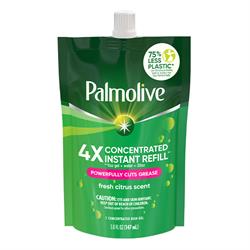
Colgate-Palmolive’s Palmolive brand of dish soaps has announced a new partnership with TerraCycle to recycle dish soap refill flexible packaging and caps. Open to any interested individual, school, office or community organization in the US, the Palmolive Refill Free Recycling Program recycles collected material into raw formats that manufacturers use to make new products. [Image Credit: © TerraCycle]
CORPORATE ACTION: PepsiCo
Quaker Oats UK Saves 200 Tonnes Of Virgin Plastic Each Year With Paper Packaging
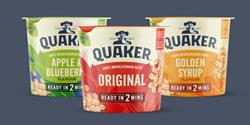 Quaker Oats is adopting paper packaging for its whole range of porridge pots in the UK. Previously, Quaker porridge pots were already recyclable but the plastic inner packaging had to be removed from the paper packaging prior to recycling. According to the company, the adoption of paper packaging will help cut the company’s use of virgin plastic by as much as 200 tonnes per year. [Image Credit: © PepsiCo]
Quaker Oats is adopting paper packaging for its whole range of porridge pots in the UK. Previously, Quaker porridge pots were already recyclable but the plastic inner packaging had to be removed from the paper packaging prior to recycling. According to the company, the adoption of paper packaging will help cut the company’s use of virgin plastic by as much as 200 tonnes per year. [Image Credit: © PepsiCo]
CORPORATE ACTION: Unilever
Nairobi Round Of Talks Focuses On Specific Provisions Of Proposed UN Plastics Treaty
.png&width=250&height=274)
According to a news item on the Unilever website, participants in the third round of negotiations on a UN plastics treaty are expected to shift from “general discussion” to more detailed and specific negotiations. Held in Nairobi, Unilever said the talks should focus on reducing plastic production and use through adoption of a circular economy. The proposed treaty should include ways for national governments to aid a “just transition” for all people involved in the value chain. [Image Credit: © Unilever]
Unilever Bangladesh Launches Initiative Supporting Climate Resilience And Plastic Circularity
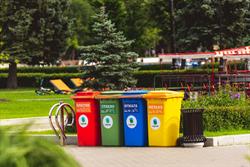 Unilever Bangladesh Limited has announced the launch of the TRANSFORM Climate Challenge that aims to promote climate resilience and plastic circularity. The company has partnered with the UK Government, EY, the SAJIDA Foundation and the British Asian Trust to launch the initiative and support social innovators working in regenerative agriculture, as well as water, sanitation and hygiene. Businesses can access more than BDT 5.5 crore in grant capital for their sustainability-related innovations. [Image Credit: © Vlad Vasnetsov from Pexels]
Unilever Bangladesh Limited has announced the launch of the TRANSFORM Climate Challenge that aims to promote climate resilience and plastic circularity. The company has partnered with the UK Government, EY, the SAJIDA Foundation and the British Asian Trust to launch the initiative and support social innovators working in regenerative agriculture, as well as water, sanitation and hygiene. Businesses can access more than BDT 5.5 crore in grant capital for their sustainability-related innovations. [Image Credit: © Vlad Vasnetsov from Pexels]
Unilever Blazes Trail In Reducing Virgin Plastic Use, Expanding Recycled Plastic In Packaging
.jpg&width=250&height=198)
Unilever Global Head of Packaging, Pablo Costa, said that the Global Commitment on plastics has helped mobilize the industry in pushing for a circular economy. Costa also said that the 500 companies that signed the commitment account for 20 percent of plastic packaging produced worldwide. For its part, Unilever has reduced its use of virgin plastic by 13 percent compared with its 2019 baseline, while the proportion of recycled plastic used in its packaging has risen from 1 percent to 21 percent in four years. [Image Credit: © Nareeta Martin on Unsplash]
CORPORATE ACTION: Other
Good Filling Removes Plastic Packaging From Selling And Buying Equation

Good Filling founder and CEO, Petros Palandjian, saw a need for a product refill system that lets consumers use the packaging they already have. To address this need, Good Filling develops and provides vending machines designed to dispense household and personal care products with no need for new plastic packaging. Palandjian said his company is focused on solving the problem of reusability and encourages consumers to bring their own empty packaging. [Image Credit: © Good Filling]
Blue Paradox Exhibit In Chicago Highlights Gravity Of Ocean Plastic Pollution
 The Blue Paradox exhibit at the Museum of Science and Industry in Chicago focuses on the plastic pollution crisis. Different displays at the exhibit provide museum visitors with an in-depth look at the millions of tonnes of plastic waste polluting the oceans each year. To help address this issue, SC Johnson seeks to design more products for the plastic circular economy. [Image Credit: © S.C. Johnson & Son Inc.]
The Blue Paradox exhibit at the Museum of Science and Industry in Chicago focuses on the plastic pollution crisis. Different displays at the exhibit provide museum visitors with an in-depth look at the millions of tonnes of plastic waste polluting the oceans each year. To help address this issue, SC Johnson seeks to design more products for the plastic circular economy. [Image Credit: © S.C. Johnson & Son Inc.]
CAMPAIGNS, COMMITMENTS & NGOs
Proposed Steps Aim To Revitalize Sluggish Anti-Plastic Pollution Strategies
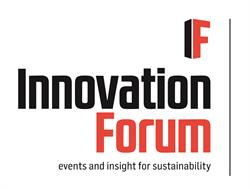 The Future of Plastics and Packaging conference hosted by sustainability events organizer Innovation Forum in Amsterdam has failed to revitalize efforts to solve the world’s problem with plastic pollution. There are three strategies that might help push efforts to deal with this problem: first, proponents should adopt all proposed strategies, including regulation, collaboration, and innovation. Second, manufacturers should adopt currently optional packaging options even before they are made compulsory by regulators. Third, stakeholders should be open and honest about strategies that have not been working.[Image Credit: © Innovation Forum]
The Future of Plastics and Packaging conference hosted by sustainability events organizer Innovation Forum in Amsterdam has failed to revitalize efforts to solve the world’s problem with plastic pollution. There are three strategies that might help push efforts to deal with this problem: first, proponents should adopt all proposed strategies, including regulation, collaboration, and innovation. Second, manufacturers should adopt currently optional packaging options even before they are made compulsory by regulators. Third, stakeholders should be open and honest about strategies that have not been working.[Image Credit: © Innovation Forum]
CONSUMER & PUBLIC OPINION
Survey Shows UK Consumers Support Ban On Individually Wrapped Produce
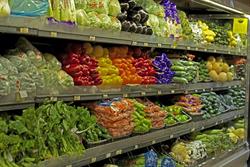
In the UK, 60 percent of consumers said they support a ban on individually wrapped fruit and vegetables, according to W.F. Denny. Results of the survey of 1,000 adults conducted by the sustainable packaging firm revealed only 34 percent of respondents favor a ban on plastic packaging of meat; 57 percent want an end to the use of black plastic food trays.[Image Credit: © Dawn from Pixabay]
MARKET NEWS
CDP Says More Than 3,000 Companies Reveal Plastic Role In Business Operations
 With the INC-3 negotiation about to start in Nairobi for the Global Plastics Treaty, it was reported that 3,162 companies, including Unilever, Sumitomo Chemical and Johnson & Johnson, have revealed their manufacture, use and disposal of the hardest-to-recycle plastics via the international environmental disclosure platform CDP. Scheduled for release in the spring of 2024, CDP’s first ever plastics disclosure report will cover companies that as a group account for more than US$31 trillion in market capitalization. Also, 48 financial institutions with more than US$3.5 trillion in assets under management have signed an open letter calling on governments to include mandatory corporate disclosure in the proposed international treaty. [Image Credit: © CDP Worldwide]
With the INC-3 negotiation about to start in Nairobi for the Global Plastics Treaty, it was reported that 3,162 companies, including Unilever, Sumitomo Chemical and Johnson & Johnson, have revealed their manufacture, use and disposal of the hardest-to-recycle plastics via the international environmental disclosure platform CDP. Scheduled for release in the spring of 2024, CDP’s first ever plastics disclosure report will cover companies that as a group account for more than US$31 trillion in market capitalization. Also, 48 financial institutions with more than US$3.5 trillion in assets under management have signed an open letter calling on governments to include mandatory corporate disclosure in the proposed international treaty. [Image Credit: © CDP Worldwide]
POLICY, REGULATION & LEGAL
Big Beverage Faces Consumer Group Action In Europe Over 100% Recyclable And Recycled Claims
 Consumer rights group Bureau Européen des Unions de Consommateurs claims large beverage producers like Danone, Coca-Cola and Nestlé, are using misleading claims when stating their bottles are “100% recyclable” or “100% recycled”, and green imagery on the bottles give consumers a “false idea” of how sustainable the bottles are. The BEUC says that the extent to which plastic bottles are made into new ones depends on many factors beyond the control of brands or customers, such as collection, sorting and recycling systems, as well as technical constraints on the materials that can be used for food and drink packaging. Lodging a complaint with the European Commission, the BEUC argues that a consumer cannot assume the water bottle will be recycled. In the EU, around half of PET bottles are recycled, according to Zero Waste Europe estimates. Although the EC does not have the right to fine companies breaching advertising rules, individual EU member state authorities can decide to do so. The companies have responded, asserting that they have made progress in reducing plastic packaging, and especially single-use and virgin plastic, and have invested heavily in packaging collection and recycling. [Image Credit: © VIVIANE MONCONDUIT from Pixabay]
Consumer rights group Bureau Européen des Unions de Consommateurs claims large beverage producers like Danone, Coca-Cola and Nestlé, are using misleading claims when stating their bottles are “100% recyclable” or “100% recycled”, and green imagery on the bottles give consumers a “false idea” of how sustainable the bottles are. The BEUC says that the extent to which plastic bottles are made into new ones depends on many factors beyond the control of brands or customers, such as collection, sorting and recycling systems, as well as technical constraints on the materials that can be used for food and drink packaging. Lodging a complaint with the European Commission, the BEUC argues that a consumer cannot assume the water bottle will be recycled. In the EU, around half of PET bottles are recycled, according to Zero Waste Europe estimates. Although the EC does not have the right to fine companies breaching advertising rules, individual EU member state authorities can decide to do so. The companies have responded, asserting that they have made progress in reducing plastic packaging, and especially single-use and virgin plastic, and have invested heavily in packaging collection and recycling. [Image Credit: © VIVIANE MONCONDUIT from Pixabay]
Ban On Sale Of Single-Use Plastic Products Takes Effect In Wales

Wales has prohibited the sale of single-use plastic products following the enactment of new legislation. Among the products covered by the ban are single-use plastic plates, plastic cutlery and drink stirrers. Also covered by the ban are to-go food containers made of expanded or foamed extruded polystyrene, plastic balloon sticks and plastic-stemmed cotton buds. [Image Credit: © Vinson Tan ( 楊 祖 武 ) from Pixabay]
RESEARCH
WRAP Highlights Plastics Recycling Achievements In UK, Calls For Public-Private Partnerships
 According to WRAP, public/private partnership models like the UK Plastics Pact must be the norm to tackle the global plastics problem. A report from the UK Plastics Pact claims that 99 percent of problematic single-use plastic items have been eliminated in UK and progress has been made on recyclability rates (71 percent) and recycling rates (55 percent). It also said that changes to plastic packaging have cut carbon emissions by over 10 percent. WRAP has sent a delegation to Nairobi to participate in discussions to develop the scope and structure a Global Treaty on plastic pollution, and says that although progress is being made, more regulation is necessary to deliver essential infrastructure and incentives. Harriet Lamb, WRAP’s CEO,said “public-private partnerships like The UK Plastics Pact show just what’s achievable through collaboration.” [Image Credit: © wrap_logo]
According to WRAP, public/private partnership models like the UK Plastics Pact must be the norm to tackle the global plastics problem. A report from the UK Plastics Pact claims that 99 percent of problematic single-use plastic items have been eliminated in UK and progress has been made on recyclability rates (71 percent) and recycling rates (55 percent). It also said that changes to plastic packaging have cut carbon emissions by over 10 percent. WRAP has sent a delegation to Nairobi to participate in discussions to develop the scope and structure a Global Treaty on plastic pollution, and says that although progress is being made, more regulation is necessary to deliver essential infrastructure and incentives. Harriet Lamb, WRAP’s CEO,said “public-private partnerships like The UK Plastics Pact show just what’s achievable through collaboration.” [Image Credit: © wrap_logo]
Agricultural Use Of Plastic Mulch Causes Microplastic Pollution Across Farms
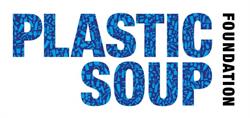 Microplastics are contaminating farms and other agricultural fields in the Netherlands and Spain, according to new research commissioned by Plastic Soup Foundation. Data from the research revealed that so-called “biodegradable” agricultural plastics seem to be a leading source of this microplastic pollution. Farmers use plastic films, also known as mulch films, to improve water management and soil erosion prevention. However, improper disposal of these films after harvest causes farmland plastic pollution. [Image Credit: © Plastic Soup Foundation]
Microplastics are contaminating farms and other agricultural fields in the Netherlands and Spain, according to new research commissioned by Plastic Soup Foundation. Data from the research revealed that so-called “biodegradable” agricultural plastics seem to be a leading source of this microplastic pollution. Farmers use plastic films, also known as mulch films, to improve water management and soil erosion prevention. However, improper disposal of these films after harvest causes farmland plastic pollution. [Image Credit: © Plastic Soup Foundation]
Copyright 2026 Business360, Inc.

